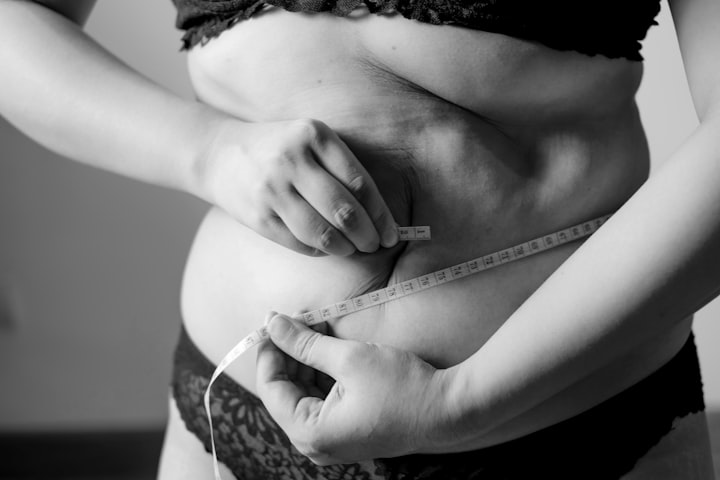6 Proven Weight Loss Methods That Do Not Require Exercise
Do you struggle to lose weight? Or would you prefer to lose weight more quickly?
The unfortunate reality is that traditional methods – eat less, run more – rarely succeed in the long run. Counting calories, working out for hours every day, and attempting to avoid hunger? That is unnecessary (and sometimes feels interminable) agony, as well as a waste of your time and energy. It's masochistic weight loss.
At the end of the day, most of us, if not all of us, who begin on a weight loss routine fail.
The following are six weight reduction techniques that can help you lose weight healthily and without suffering (or exercising). Begin with one adjustment and make it a part of your daily routine. Without changing anything else, just one piece of advice will undoubtedly assist you in losing weight.
If you want to reduce weight even faster, make extra lifestyle adjustments. Consistency is essential in this case.
1. FOLLOW A LOW-CARB DIET
This is an old concept. There have been a plethora of weight-loss regimens centered on consuming fewer carbohydrates for over 150 years. What's new in recent years is that an increasing number of current scientific research has shown that, yes, on average, low carb can be the most efficient approach to lose weight.
Obviously, losing weight on any diet is still doable — simply consume fewer calories than you burn, right? The problem with such basic counsel is that it fails to address the elephant in the room: Hunger.
Most people dislike the idea of "simply eating less," since it implies that they would have to be hungry for the rest of their lives. A typical individual will eventually give up and eat, which explains the popularity of "yo-yo dieting."
While it should be possible to lose weight on any diet, some appear to make it much simpler than others.
The biggest benefit of the low-carb diet is that it may make you want to eat less. Even if they do not measure calories, overweight persons tend to eat fewer calories on a low-carb diet.
Sugar and carbohydrate may boost your appetite, whilst eliminating them may reduce your appetite to a more appropriate level.
You don't need to count calories if your body desires to have an adequate amount of them. Thus, calories are important, but they do not have to be counted.
A 2012 research also found that persons who lost weight reported a 300-calorie drop in total energy expenditure (the number of calories burnt in a 24-hour period) when they maintained a low-carb diet during weight maintenance compared to a low-fat diet.
This benefit, according to one of the Harvard professors behind the study, "would equal the number of calories normally burnt in an hour of moderate-intensity physical exercise." Imagine getting an extra hour of workout every day without having to do anything.
An even larger and more meticulously conducted investigation has validated this metabolism-sparing effect. Different groups of participants lost weight by burning an extra 200 to almost 500 calories per day on a low-carb maintenance diet vs a high-carb or moderate-carb diet.
Takeaway: A low-carb diet can help you lose weight by reducing your hunger. It may even enhance your fat burning while you're sleeping. Study after study demonstrates that low carbohydrate diets are effective for weight reduction and, on average, enhance crucial health indicators.
2. EAT REAL FOOD
Real food is what people have been consuming for thousands, if not millions, of years, such as meat, fish, vegetables, eggs, butter, olive oil, nuts, and so on.
Avoid special "low-carb" goods that are high in carbohydrates if you want to lose weight. This should be self-evident, yet clever marketers are doing all they can to deceive you (and get your money). They will convince you that if you buy their brand, you can eat cookies, spaghetti, ice cream, bread, and lots of chocolate on a low-carb diet. They are frequently high in carbs. Don't be duped.
What about some low-carb bread? Be cautious: if it's made with grains, it's almost probably not low carb. However, some firms continue to try to promote it to you as a low-carb choice.
Low-carb chocolate is typically high in sugar alcohols, which are not included as carbohydrates by the maker. However, around half of these carbohydrates may be digested, boosting blood sugar and insulin levels. The leftover carbohydrates wind up in the colon, where they might cause gas and diarrhea. Furthermore, any sweetener can keep sugar cravings going.
TO AVOID THIS, FOLLOW TWO SIMPLE RULES:
- Don't eat "low carb" versions of high carb foods like cookies, bars, chocolate, bread, spaghetti, or ice cream unless you know what's in them (ideally, by making it yourself).
- Avoid items that contain the term "net carbohydrates." That might be a ruse to fool you.
Concentrate on consuming high-quality, minimally processed genuine food. Ideally, the food you buy should not even have an ingredient list (or it should be very short).
MORE QUALITY WITH LESS MODERATION
Finally, you may wish to disregard the old adage "everything in moderation." It isn't always beneficial counsel for those who are trying to lose weight - in fact, it may be quite the contrary.
You should not consume everything in moderation. When you're hungry, eat as much healthful food as you can. Eat as little unhealthy food as possible – if at all feasible.
Takeaway: When you're hungry, eat actual food. When you're not hungry, stop eating.
3. STAY AWAY FROM FRUIT
This is a contentious bit of advice because fruit now has an almost miraculous health aura. People may assume that fruit is healthful, but it really includes a lot of sugar - roughly 10% by weight (the rest is mostly water). Just take a bite out of an orange or a grape. Isn't that great?
Five servings of fruit per day equal the sugar content of 16 ounces of soda (500 ml). Contrary to popular belief, the natural sugar in fruit is nearly comparable to sugar in soda and other sweet beverages (about 50 percent glucose, 50 percent fructose).
Fruit sugar has been shown to inhibit fat burning. Eating a lot of fruit might make you hungry and slow down your weight reduction.
For the greatest outcomes, skip fruit — or eat it infrequently as a treat.
Takeaway: Fruit is nature's candy.
4. DON'T DRINK BEER
Beer provides quickly absorbed carbohydrates that inhibit fat burning. This might explain why beer is frequently referred to be "liquid bread." There's a reason the term "beer belly" exists.
Here are some wiser (lower-carb) alcoholic weight-loss options:
- Vino (red or dry white)
- Brut champagne
- Hard liquors such as whiskey, cognac, and vodka (avoid sweetened cocktails in favor of vodka, soda water, and lime).
These beverages are healthier than beer since they contain very little sugar/carbohydrates. Large quantities of alcohol, on the other hand, may impede weight reduction slightly, so moderation is still advised.
5. STAY AWAY FROM ARTIFICIAL SWEETENERS
Many people substitute artificial sweeteners for sugar in the mistaken idea that doing so will lower their calorie consumption and result in weight reduction. It appears probable. Several studies, however, have failed to demonstrate a clear benefit in weight reduction by using artificial sweeteners instead of simple sugar.
Artificial sweeteners, according to scientific research, may enhance hunger and maintain the desire for sweet foods.
Furthermore, a recent independent study found that switching from artificial sweeteners to water helped women lose weight.
Furthermore, artificial sweeteners can feed a sweet tooth and cause food cravings. Furthermore, the long-term implications of using artificial sweeteners are unclear.
The beverage industry frequently funds studies purporting to prove the neutral or beneficial effects of sweeteners.
THERE IS NO DIFFERENCE WITH STEVIA.
Stevia is, by the way, advertised as a natural alternative to artificial sweeteners. That is marketing jargon. What is natural about a manufactured super-sweet white powder like Stevia?
If you're having difficulties losing weight, I recommend avoiding sweeteners. As an added plus, if you're no longer accustomed to the excessive artificial sweetness of manufactured low-carb food products and "diet" beverages, you'll likely find it simpler to enjoy the natural sweetness of genuine food.
6. SLEEP MORE, STRESS LESS
Have you ever yearned for more sleep or a less hectic existence in general?
Most individuals do - stress and lack of sleep can be detrimental to their weight.
Chronic stress and insufficient sleep may raise stress hormone levels in your body, such as cortisol.
This might lead to increased appetite and weight gain.
If you want to lose weight, you should look at ways to reduce or better manage excessive stress in your life. Although this frequently necessitates significant modifications, it may have an immediate impact on your stress hormone levels and maybe your weight.
You should also make an attempt to sleep well, preferably every night. Strive to wake up refreshed on your own, rather than relying on an alarm clock. If you're the type of person who is always jolted awake by the alarm clock, you may never be giving your body enough rest.
One approach to avoid this is to go to bed early enough so that your body can wake up on its own before the alarm clock goes off. Allowing oneself to obtain a decent night's sleep is another method for lowering stress hormone levels.
Sleep deprivation, on the other hand, is closely linked to sugar cravings. It also has a negative impact on self-control and makes succumbing to temptation excruciatingly easy (it's no surprise that induced sleep deprivation is a regular interrogation tactic). Similarly, a lack of sleep inhibits your drive to exercise.
SLEEP PROBLEMS?
Do you have difficulties sleeping even when you have plenty of time? Here are five professional recommendations:
Maintain a consistent nighttime routine. This will assist your body to prepare for sleep at that time in the long term.
After 2 p.m., no coffee. Just don't – and keep in mind that caffeine takes time to exit your system.
Limit your alcohol consumption to three hours before going to bed. While alcohol may make you drowsy, it degrades your sleep quality.
Exercise should be limited to four hours before bedtime. Physical exercise might cause you to get agitated and make it difficult to sleep for several hours afterward.
Every day, spend 15 minutes in the sun. This is beneficial to your circadian rhythm (your "body clock").
Make sure your bedroom is sufficiently dark and at a comfortable temperature.
DIFFICULT, BUT WORTH THE EFFORT
Many people may find it difficult to follow the aforementioned principles, maybe due to a lack of time (or the equivalent – little children!).
But worrying less and sleeping more isn't merely a pleasant feeling. It might also assist you in becoming leaner.
LAST BUT NOT LEAST... YOU SHOULD TRY THIS 10-SECOND "DAILY FIX" THAT BURNS UP TO 3 POUNDS OF BELLY FAT IN 3.5 DAYS...
Click here to see the 10-second "daily fix" that helped me drop 33.5 pounds in 30 days.







Comments
There are no comments for this story
Be the first to respond and start the conversation.